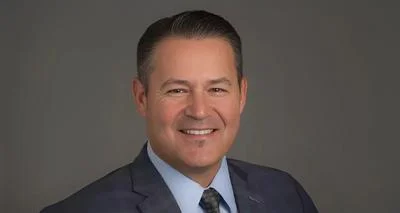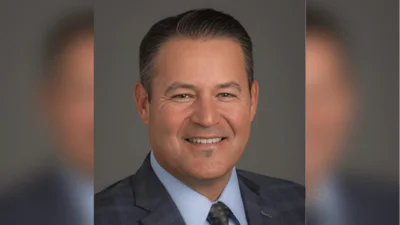Hudson Hospital And Clinic issued the following announcement on Nov.
Long COVID. Post-COVID syndrome. Long-term COVID. The lingering health challenges that some people experience after having COVID-19 are known by many names. And those living with the lasting effects of the coronavirus are often called COVID-19 long-haulers.
What makes someone a COVID long-hauler? What types of long-term symptoms are they experiencing? And is there any way to prevent the long-term effects of the coronavirus? Keep reading to learn more.
Who are COVID-19 long-haulers?
Most of the time when people get COVID-19, they get better within a couple weeks. But sometimes, people who had COVID-19 continue to experience new or ongoing symptoms for a month or even longer. These people are considered COVID long-haulers.
For people with long-haul COVID-19, getting over COVID-19 can feel like a marathon and not a sprint. In fact, a few people who got COVID-19 at the beginning of the pandemic still have symptoms.
Other viruses, like the seasonal flu, can also have long-haul symptoms that last for a long time. But it appears that long COVID is more common – and the ongoing symptoms can be more severe.
Long-haul COVID-19 symptoms
COVID-19 is an infection that primarily affects your lungs and ability to breathe. However, in more severe cases, being sick with COVID-19 can cause problems for your heart, blood vessels, kidneys, brain, skin and more.
According to the Centers for Disease Control and Prevention (CDC), common post-COVID symptoms include:
- Lung issues (like difficulty breathing, shortness of breath or lingering cough)
- Heart problems (like chest pain or a fast beating heart)
- Neurological issues (like “brain fog”, dizziness or headaches)
- Mental health concerns (like mood changes)
- Changes in taste or smell
- Tiredness and fatigue
- Pain (like in the stomach, joints, muscles or chest)
- Symptoms that worsen after physical or mental activities
- Pins-and-needles feeling
- Diarrhea
- Sleep problems
- Fever
- Rash
- Changes in menstrual period cycles
COVID-19 seems to target the single layer of cells lining every blood vessel – this layer is called the endothelium. If your endothelial cells are damaged, there is a possibility that you could develop blood clots throughout your body. Blood clots can make it hard for oxygen-rich blood to get where It needs to go. So depending on where and if blood clots form, COVID-19 can cause symptoms in the heart, lungs, brain, arms, legs and other parts of the body.
Lung issues after COVID-19
Difficulty breathing, shortness of breath, wheezing or a lingering cough after COVID-19 are signs that you may have post-COVID complications that are affecting your lungs. Whether you’ll get coronavirus lung damage depends on a few things, including the severity of your original symptoms, other health conditions, treatment and recovery.
For example, if you had severe pneumonia or acute respiratory distress syndrome during COVID-19, it could take a while to get better and you may need a doctor to help manage your symptoms.
How to improve lung health after COVID-19
One thing that can help with your recovery is exercising your lungs. Start with gentle physical exercise like walking or biking – gradually increasing the duration and intensity of the activity. Breathing exercises can help too.
When to contact the doctor
It’s always a good idea to contact your doctor before beginning a new exercise program. In addition, contact them if you have:
- New or increased cough
- New or increased shortness of breath
- Difficulty breathing
- New or worse chest pain
Heart problems after COVID-19
Your chance of getting COVID-19 heart damage depends on how healthy your heart was before COVID-19 and what happened when you were sick.
COVID-19, especially severe cases, can put a lot of stress on your heart. If you had heart disease before getting the coronavirus, it could increase the chance of rapid heart rate and chest pain after COVID-19.
But according to the American Heart Association, there is data showing that even people without heart problems before COVID-19 may have long-haul cardiac symptoms. And, some people may end up with heart problems, even if their initial COVID-19 symptoms were minor.
How to improve heart health after COVID-19
There are things you can do at home to promote heart health after COVID-19 and being active is one of them. Getting daily exercise can make your heart stronger.
When to contact your doctor
If you’re not sure you’re healthy enough for exercise, check with your doctor first. Your doctor may recommend cardiac rehabilitation to improve how well your heart works.
Also, if you feel like your heart is beating too hard or too fast, skipping a beat or fluttering, you may be experiencing heart palpitations after COVID-19 and you should contact your doctor. And if you experience warning signs of a heart attack – such as dizziness or lightheadedness, chest pain and shortness of breath – call 911 right away.
Neurological problems after COVID-19
In some cases, people with long COVID-19 can have memory and communication problems. But more often, the symptoms after recovery are less severe and include:
- Brain fog
- Headache
- Dizziness
Getting exercise, sleeping well, eating a healthy diet and managing stress related to COVID-19 can go a long way toward keeping your head clear. If you find yourself forgetting to take your medications or missing activities, try using a day planner or setting up calendar reminders on your smart phone.
When to contact your doctor
If your symptoms are getting in the way of your daily life, talk to your doctor about activities and treatment that may help.
Mental health challenges
Having COVID-19 can be scary and treatment in a hospital’s intensive care unit can be overwhelming, especially if you need a ventilator to breathe. What we’ve found is that people who’ve overcome severe COVID-19 are more likely to develop depression, anxiety and post-traumatic stress syndrome.
Dealing with grief and loss from COVID-19 is also challenging because survivors may have unresolved pain or fatigue. Just remember, you don’t have to go through it alone – there are people who want to be there for you.
How to improve mental health after COVID-19
It can also be helpful to talk about your experience, so look for a support group. There are mobile apps that can help, too. For example, myStrength is an app designed to provide emotional health support to HealthPartners members.
Also, take time to participate in activities that lift your spirits. Spending time outdoors and doing physical activities are proven mood boosters.
When to talk to your doctor
Talk to a doctor or a therapist if your mood is negatively impacting your daily life or if mood changes last for more than a few weeks. And call 911 if you have thoughts or intent to harm yourself or others.
Loss of taste or smell
Most people who get COVID-19 call out the loss of taste or smell as one of the early symptoms. In some cases, these senses are completely gone, while in others, things smelled or tasted bad or different.
Some COVID-19 survivors regain these senses within a couple weeks, but for others it can take much longer. Studies are ongoing about the long-term impact of COVID-19 on taste and smell, but at this point, it looks like most people will get better within a year.
When to contact your doctor
If it’s been a few months and your sense of smell and taste haven’t come back, talk to your doctor. There may be therapy options to help get you smelling and tasting again.
Who gets long COVID?
Numerous studies show that about 10-30% of people who get COVID-19 have long-term effects from the coronavirus.
Many people assume that COVID-19 long-haulers have underlying medical conditions or had a serious case of COVID-19. And, it certainly appears that older people and those with serious medical conditions are more likely to experience long COVID.
But if you’re younger or had a mild case of COVID-19, it’s still possible to have symptoms of long COVID. Even people who had few or minor symptoms in the beginning might find themselves suddenly experiencing post-COVID symptoms that are more noticeable and won’t go away.
While we don’t yet know exactly why long COVID happens, the scientific community thinks it may have to do with damage to blood vessels, autoimmune effects or underlying infection. Research is underway to learn if certain people are more likely to continue to feel the effects of COVID over the long-term and how best to treat these effects.
Are you still contagious if you have long COVID?
No. Most people who get COVID-19 aren’t contagious once it’s been 10 days since their first symptoms and 24 hours since they’ve had a fever. If you get to that point and most of your symptoms have improved, the COVID-19 virus should be out of your system. And, if you don’t have active coronavirus in your system, you won’t be able to pass it on.
The only way you would be contagious is if you got COVID-19 again. If you haven’t done so already, get a COVID-19 vaccine – it’s the best way to strengthen your defenses against current and future variants of COVID-19.
If you’d like more information about when you’re contagious with COVID-19, check out the CDC’s recommendations for quarantine and isolation.
Treatment of long-haul COVID-19
The treatment you’ll need for long COVID will likely depend on the severity of your symptoms. If you’re experiencing any long COVID symptoms, talk to your primary care doctor. They’ll help diagnosis your symptoms and create a personal treatment plan to get you on the road to recovery.
In some cases, your doctor may suggest rehabilitation in a COVID-19 aftercare clinic that focuses on:
- Cardiac rehabilitation to improve heart function
- Pulmonary rehabilitation to improve lung function
- Physical therapy or occupational therapy to support walking, mobility, self-care and regaining your sense of taste and smell
Right now, it’s unclear if getting the vaccine while experiencing long COVID symptoms will reduce the length or severity of symptoms, but it’s something scientists are currently researching.
What’s the best way to prevent long COVID-19?
According to the CDC, one of the best ways to avoid getting COVID-19 and the long-haul symptoms that sometimes follow, is to get a COVID-19 vaccine as soon as you can – whether you’ve had COVID-19 or not.
It’s also a good idea to continue to follow the recommended social distancing and masking guidelines, and skip gatherings in enclosed spaces, especially if others may not be vaccinated.
Stay in contact with your doctor – and stay informed about COVID-19
If you’re experiencing long-haul COVID and would like help managing your symptoms, follow-up with your primary care doctor. There are ways to manage the long-term effects of COVID-19 – and we’re here to help.
Your doctor can help you set goals to try to ease your most bothersome symptoms. In some cases, your doctor may refer you to post COVID-19 rehab.
Original source can be found here.




 Alerts Sign-up
Alerts Sign-up